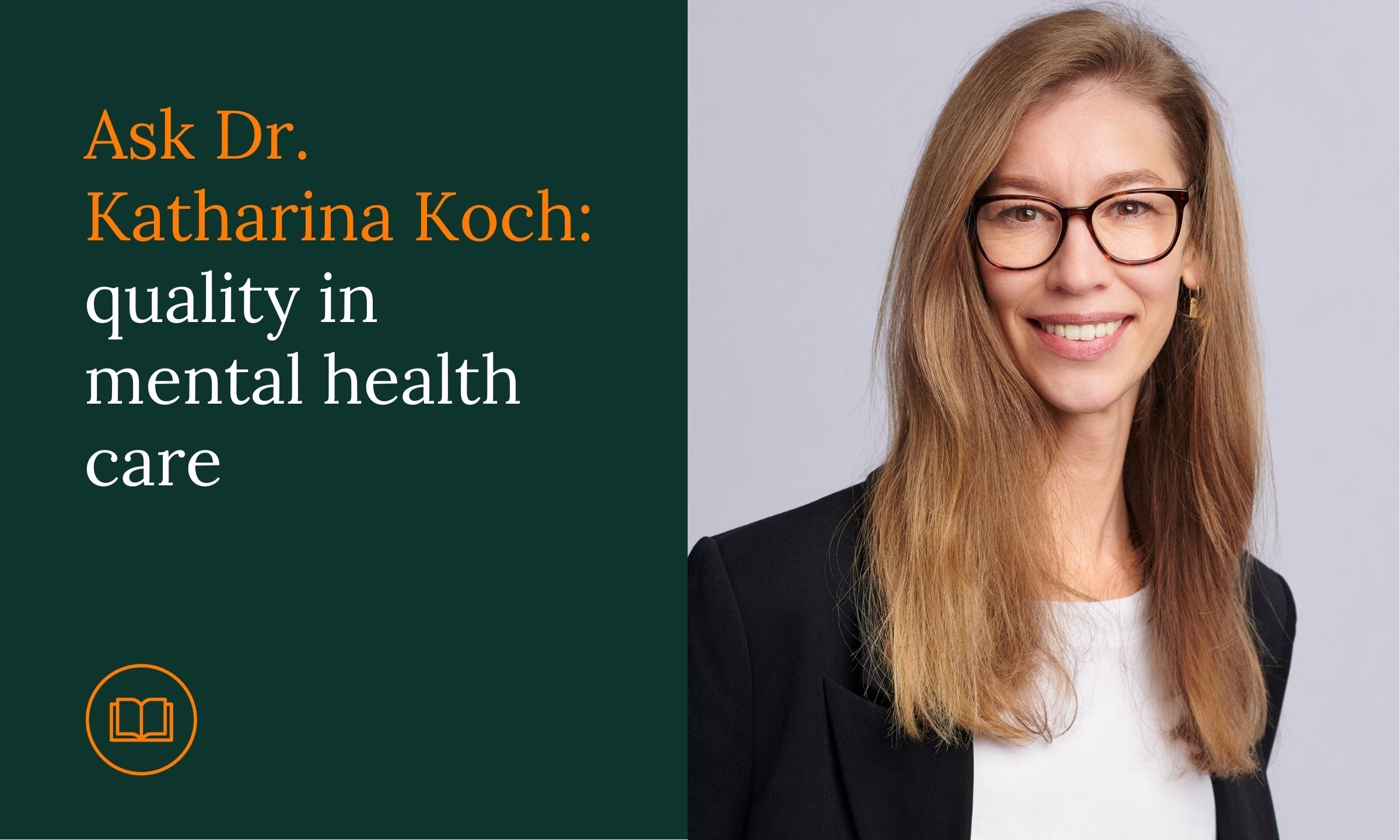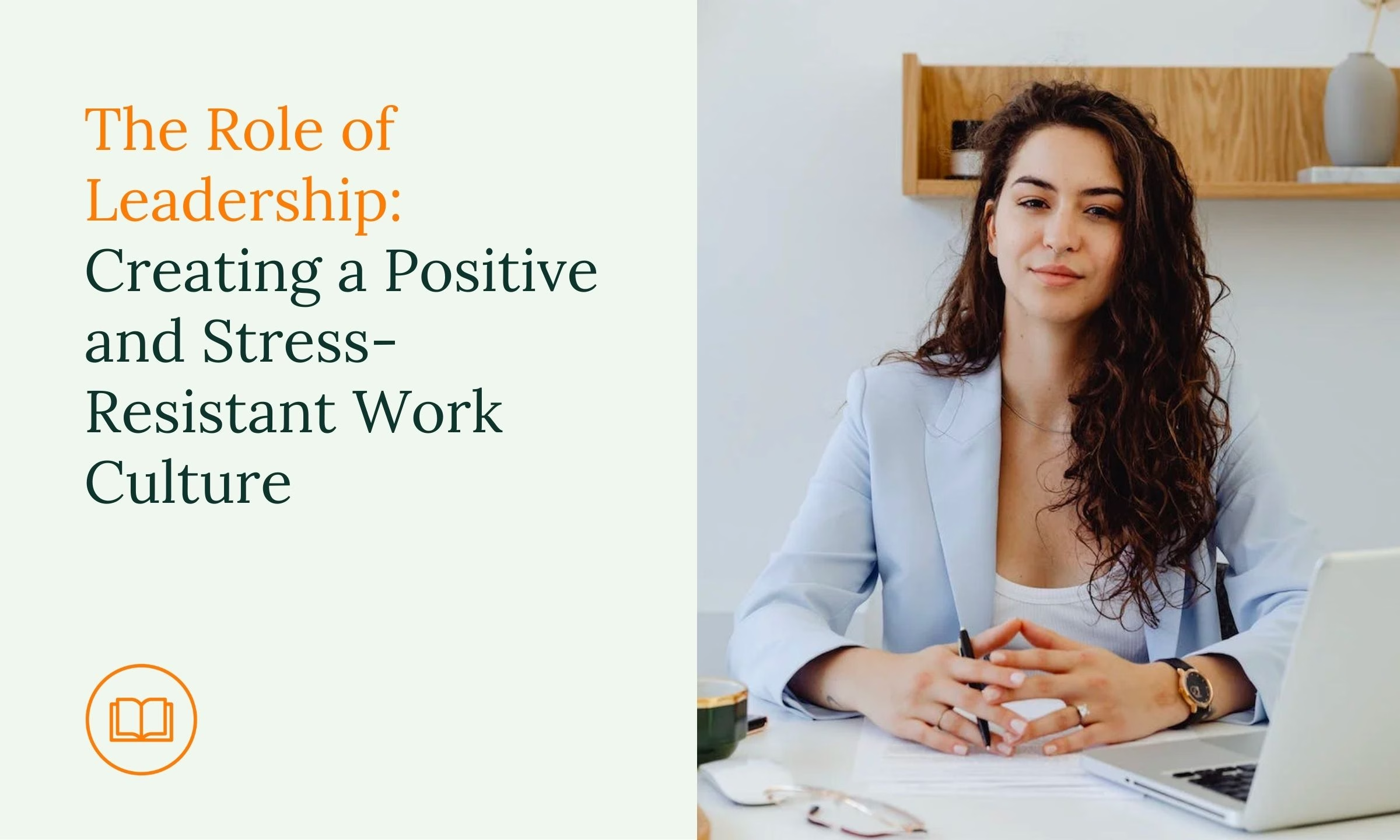Everything you need to know about work, mental health, and HR – from an expert. Join us in our series with Dr. Katharina Koch, a Clinical Psychologist certified in Cognitive Behavioral Therapy and Head of Psychology here at nilo.health. In this edition Katharina will answer frequently asked questions about quality in mental health care at work
How do I know if mental health support is high quality?
What are the risks if I don’t consider quality when deciding for a mental health benefit?

How do I know if mental health support is high quality?
There are some important features you can look for in any mental health benefit to know whether it’s high quality. First and foremost is making sure that the resources behind the benefit are science-based and accredited.
Psychologists who work with the platform should be carefully vetted and have leading qualifications, expertise and experience. Any activities should be research-led and you should ask to find out about the science behind the benefit.
You can also look at the features the mental health benefit offers, and whether those features are offered at a high quality.
For example, if the benefit offers one-to-one sessions, what are the psychologists like who conduct those sessions? Can the benefit tell you about their qualifications and expertise? Do they have a rigorously vetted background with multiple years of experience in an evidence-based field?
Finding answers to these questions will help you evaluate the quality of the support. And you can ask similar questions about all the features offered, to ensure that everything is research-based and highly trained.
For more help in choosing a high quality mental health benefit, you could take a look at our guide.
What are the risks if I don’t consider quality when deciding for a mental health benefit?
Just like poor healthcare for your physical health, poor mental healthcare comes with serious risks. In the worst case scenario, someone who truly needs mental health care might go under the radar and end up needing serious, emergency and indefinite medical care.
But even in less drastic scenarios, there are big risks to a poor quality mental health benefit. Your employees won’t get the help they need, or they’ll get unqualified help which makes things even worse.
And a bad product won’t be able to create the engagement you need for results and good feedback from your team. Think of going to a gym with poor equipment: people aren’t going to risk using it.
As a result, your mental health support could actually end up increasing stigma around mental health at your work, because it would confirm to skeptics that mental health care doesn’t work. It might lead to a psychologically unsafe environment, and it will be harder to get people onboard for actually effective mental healthcare in the future.
And of course, if you invest in something low quality you won’t see a big return on investment. If you pick poor quality mental health care, the best case scenario is that nothing at all will change. So you’ll effectively just be burning money.
Why is it important to have diverse options for mental health support, like one-to-one sessions, group sessions, roundtable discussions, self-guided lessons and more?
Mental health is a journey, and everyone is at a different point on that journey. It’s also useful to think of mental health as a spectrum, where some people might need crisis support while others need preventative care or help building resilience, or healthy habits.
And on top of these points, everyone is an individual, with their own diverse preferences, and different people respond well to different types of therapy.
For example, one person might not be ready to open up to a psychologist about their personal and professional issues. But if they spend some time with self-guided digital reflections or even meditating, they might become more comfortable with the idea of talking to a professional or more familiar with the topic of mental health itself.
Diverse options provide low-threshold entry points for people across the mental health knowledge spectrum.
To take another example, one person might find that they learn best in a group, when they can bounce their ideas and experience off other people’s. They might get so much from this group work that they don’t need one-on-one therapy.
High quality mental health support recognizes this diversity, and offers a diverse range of therapies to match!
Want to know more? Sign up for our newsletter, or book a demo today!







